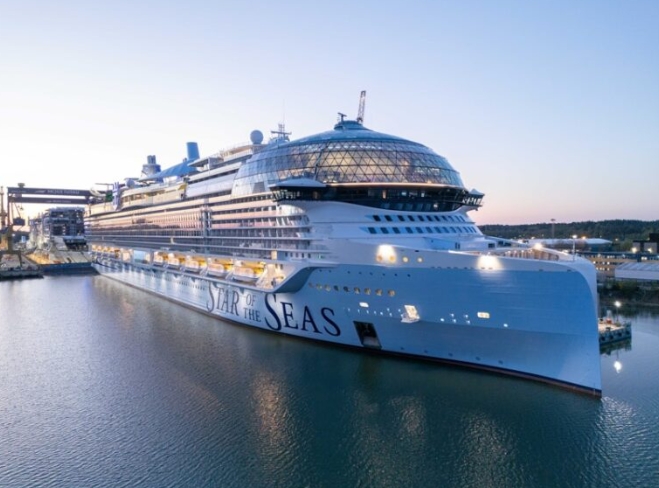
The transition began with infrastructure upgrades in late 2023, enabling the deployment of a movable water-based heating system by late autumn 2024. By early March 2025, this system had replaced approximately 428 cubic meters of oil, reducing CO2 emissions by about 1,042 tons. The switch to district heating not only lowers environmental impact but also offers substantial cost savings due to its efficiency compared to oil-based alternatives.
Hanna Haaksi, Meyer Turku’s Head of ESG, stated: “The best kind of energy is the one that we never use. In our sustainability works we want to focus on concrete actions, and I believe that this is a great example of that.” The company plans to expand this central heating system across all ships under construction, aiming to phase out oil-based heating entirely in the coming years.
Meyer Turku is also enhancing energy efficiency at its shipyard through initiatives like compressed air optimization, LED and smart lighting, climate control for production facilities, upgraded ventilation systems, and heat recovery improvements. These efforts align with the company’s broader commitment to sustainability and innovation in the global shipbuilding industry.
In 2022, Meyer Turku faced financial challenges but received €80 million from the Finnish government to support its operations. That same year, the company launched the NEcOLEAP project in collaboration with Åbo Akademi University, establishing the Green Transition Lab to develop carbon-neutral technologies for cruise ships. This initiative aims to ensure the competitiveness of Finland’s shipbuilding sector while advancing sustainable practices.
Meyer Turku’s long-term goal is to achieve carbon-neutral operations by 2030, requiring advancements in technology and systemic changes in production processes. The company continues to collaborate with industry partners to implement innovative solutions, reinforcing its role in promoting a sustainable maritime sector.